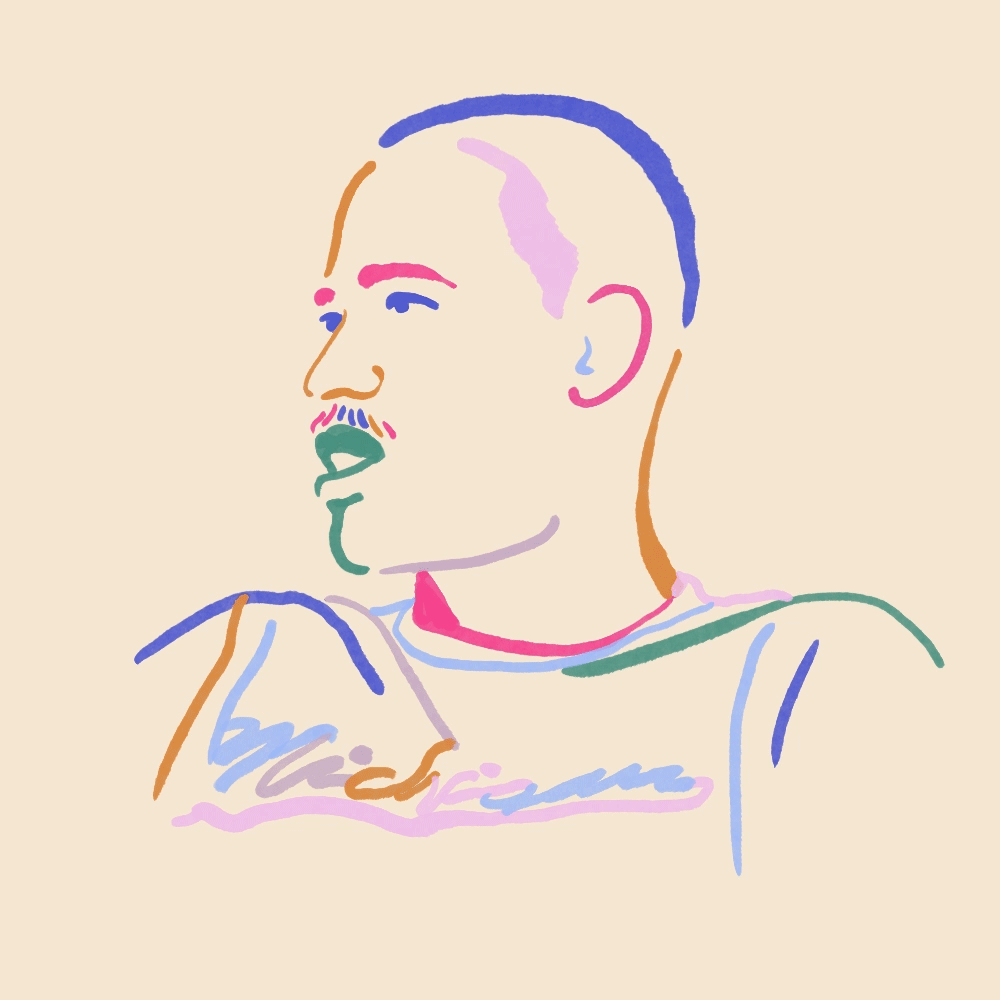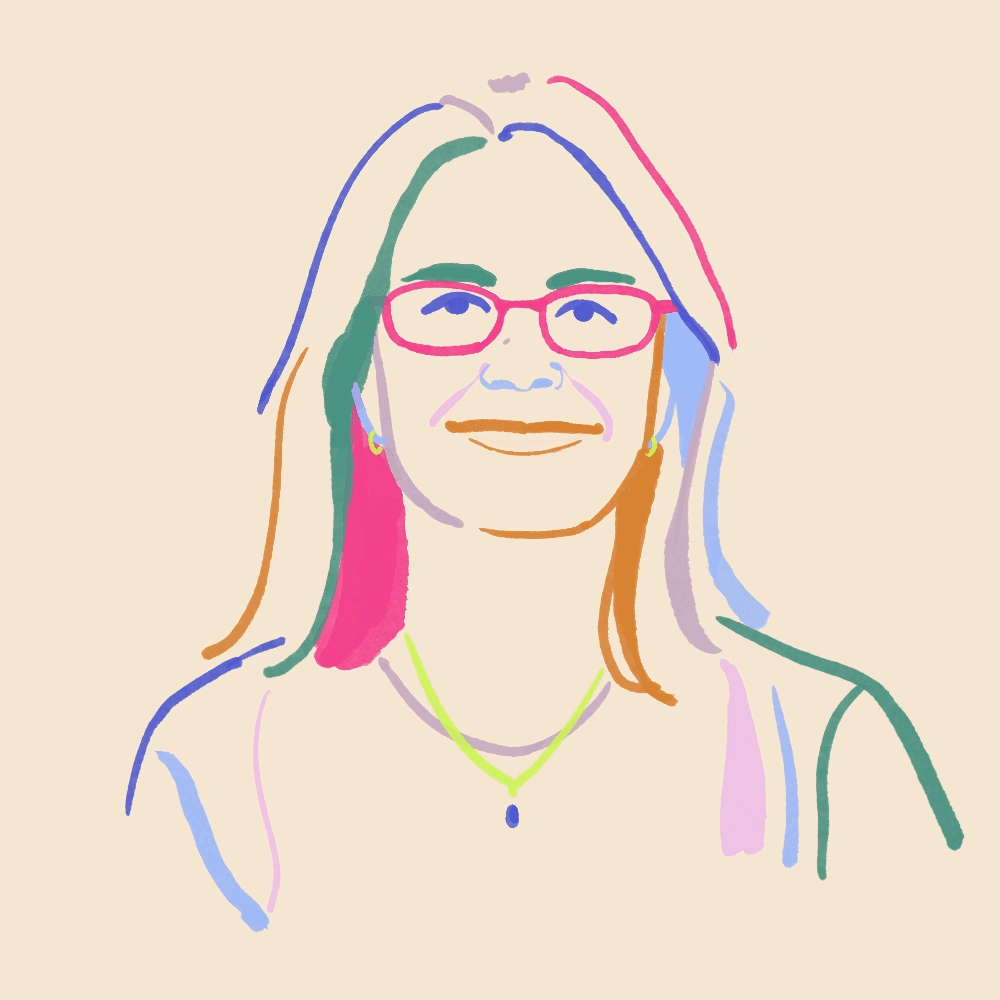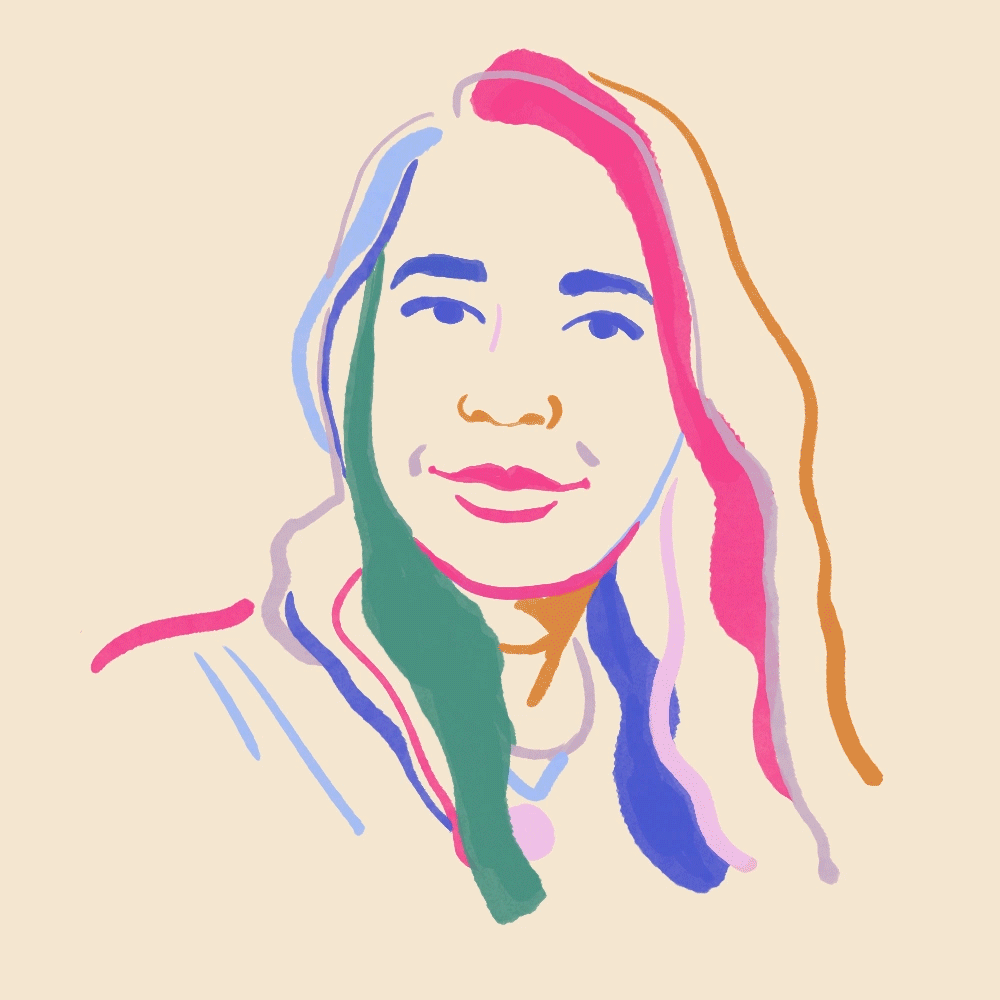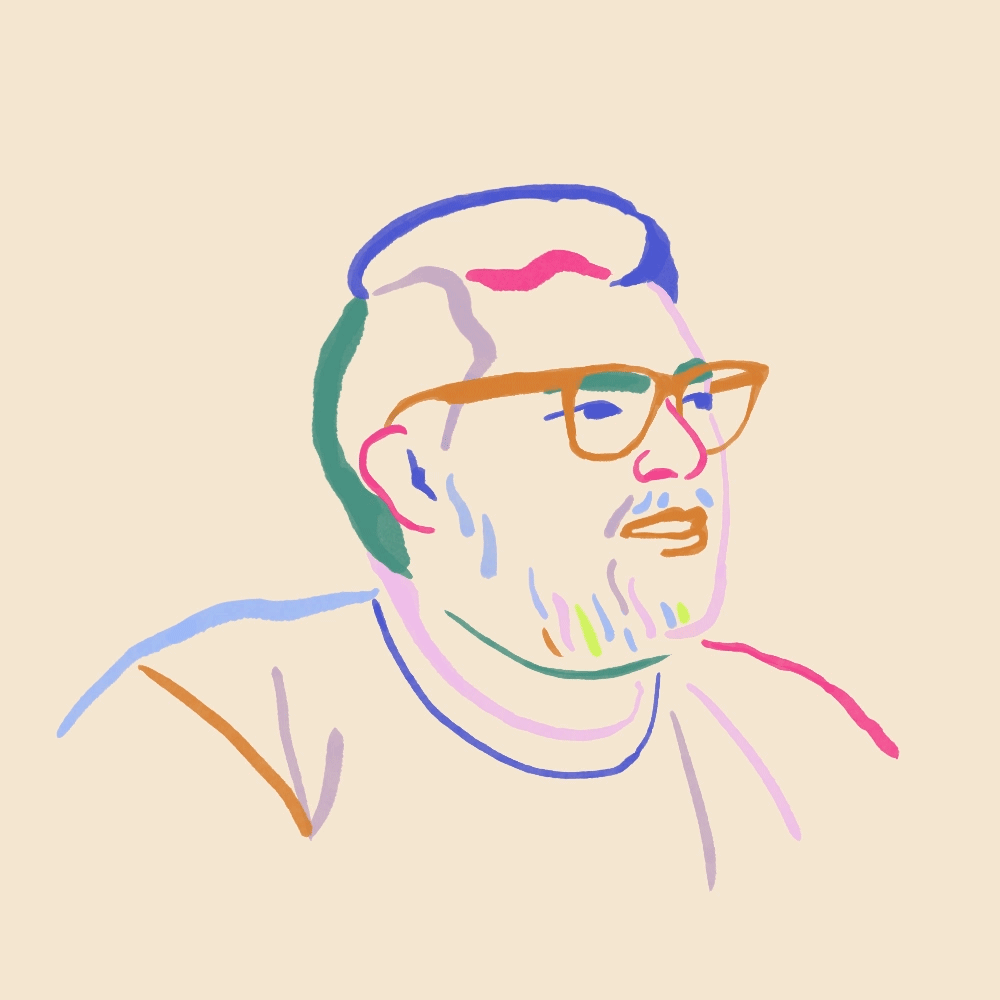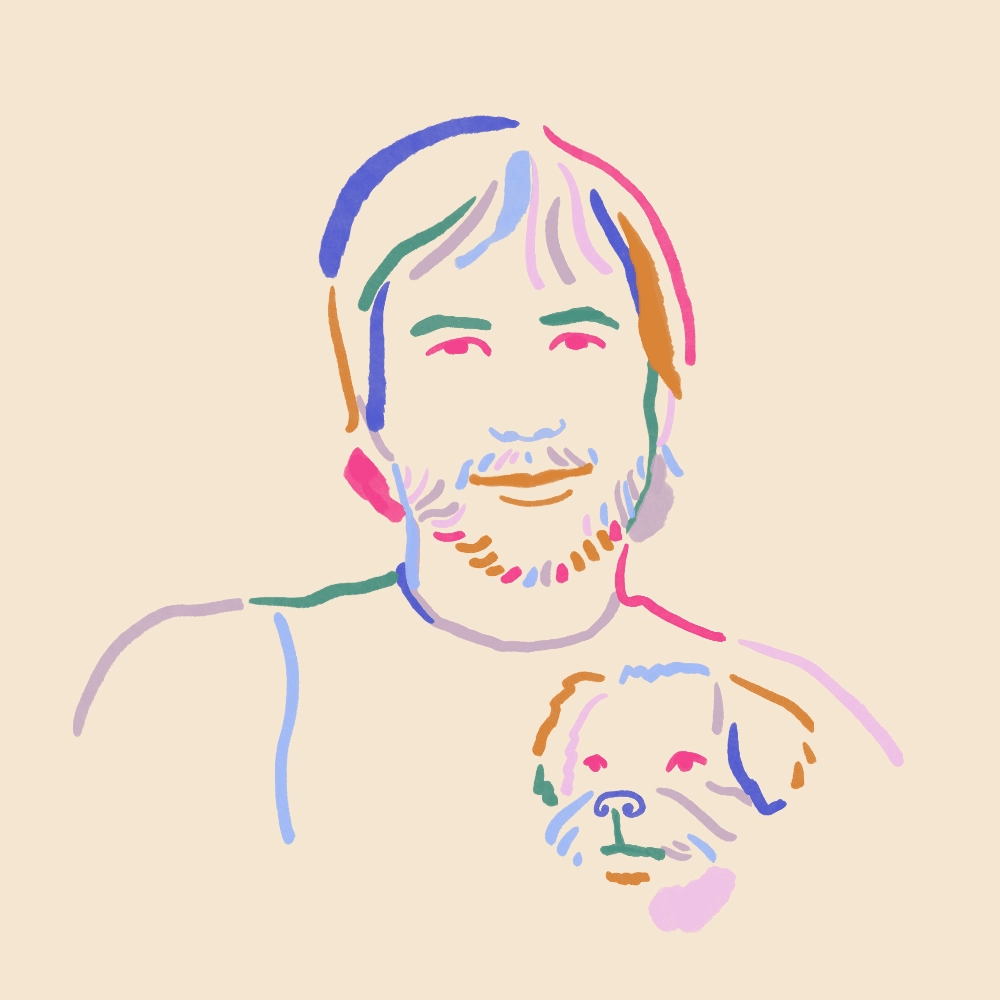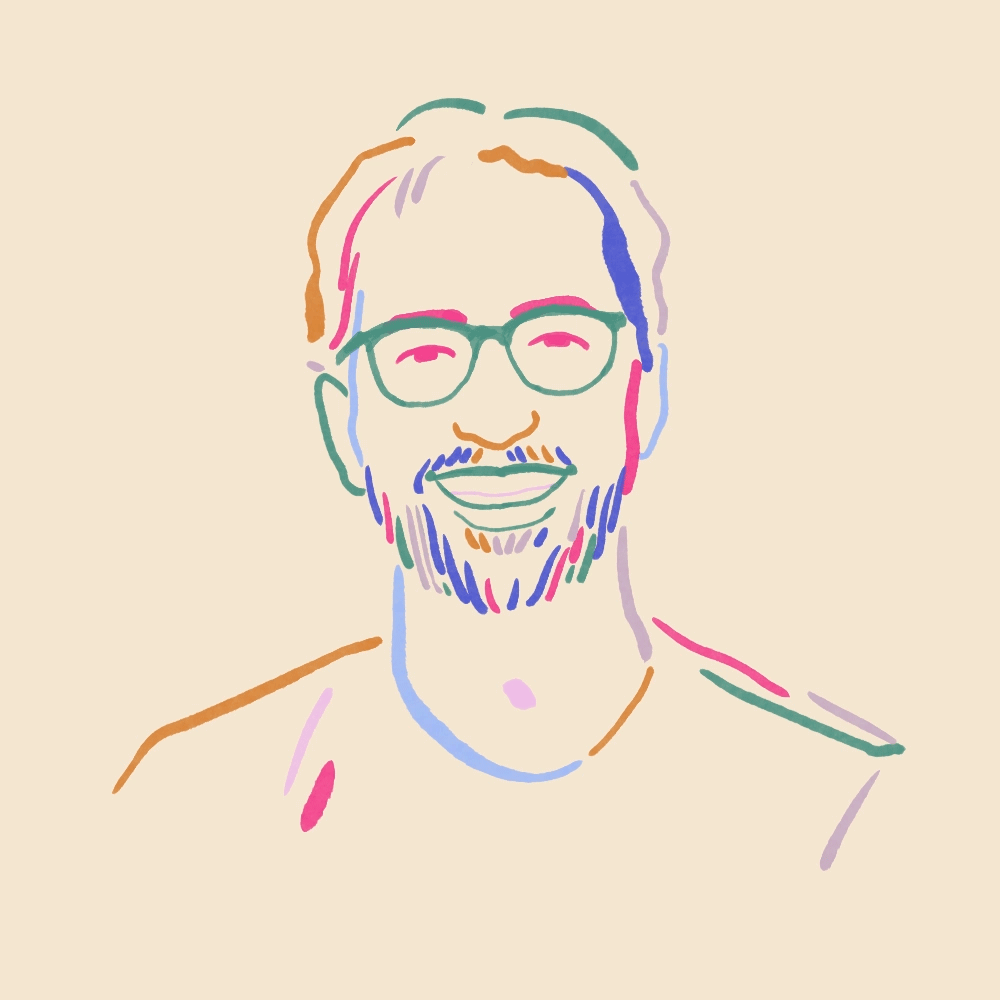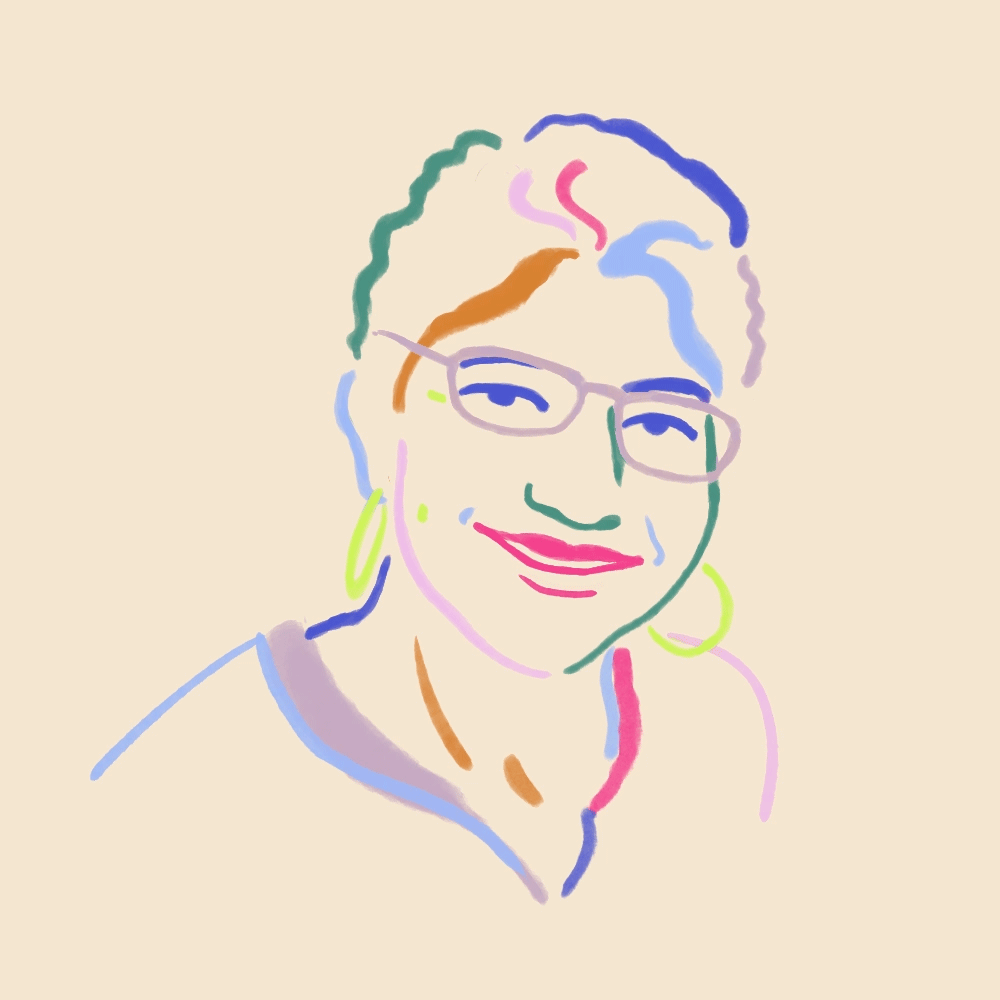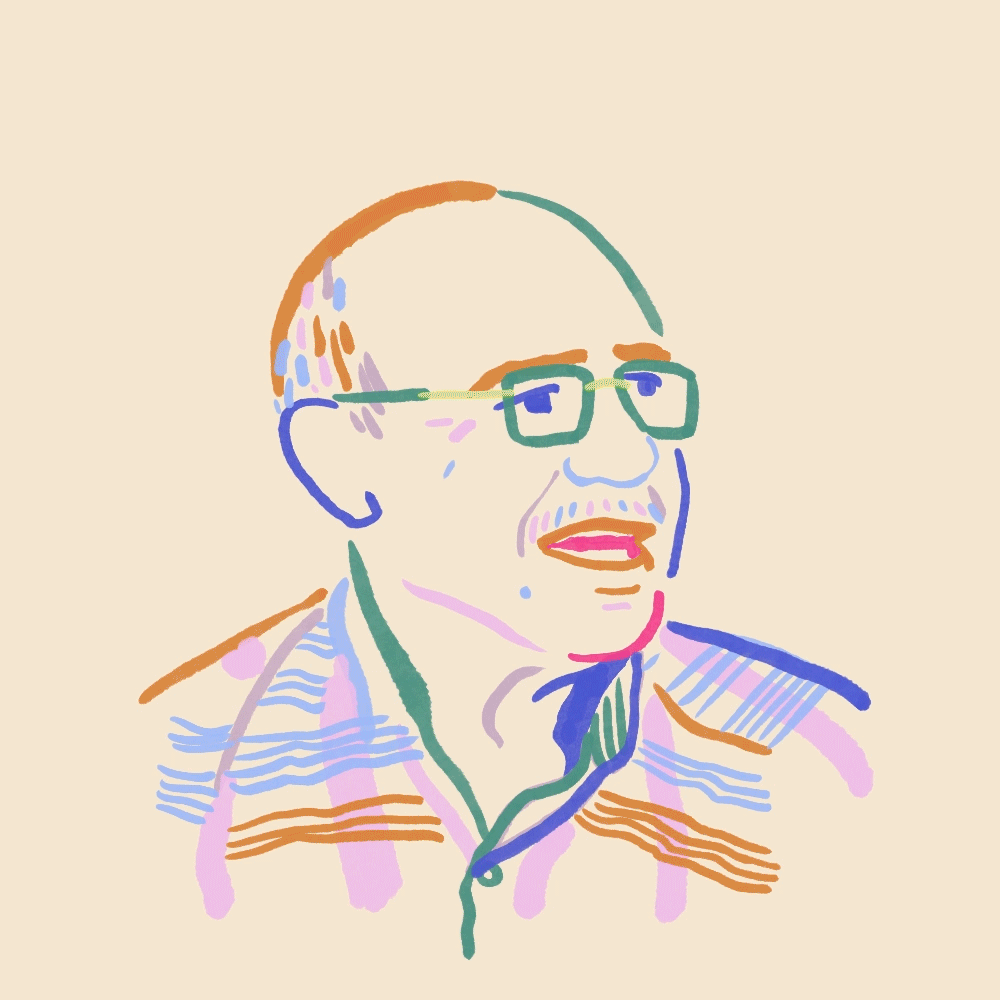ANGELENO VOICES ON CLIMATE CHANGE
Gabby
Most people try to not think that far into the future because it's not a pretty picture with the way things are going.
-
And that is one of the biggest issues. We forget that what we're doing right now is really going to affect us and our future generations in the long term. There isn't a real sense of urgency from the most powerful countries on this planet to begin to change things and change doesn't happen from one day to the next. It's going to be such a long process that the fact that we haven't already really started is really upsetting.
There's a lot of decisions to be made right now. Like, who we're voting for, and how we're consuming things. Also talking to other people about it and creating awareness about it, because it's definitely one of those uncomfortable truth subjects that people don't like to speak about because we all feel guilty about it and no one likes feeling that way.
It needs to be more of a conversation on 'how do we move forward from now and what are the solutions'? It's really up to us to start the conversation and make it not like "oh, we're going to talk about the sad thing again", It needs to be as common as talking about 'what did you eat for breakfast'?
My name is Gabriella. I'm 28 years old. I live in Los Angeles, California and I am scared as hell about the planet and I would love to keep talking about it.
Saleh
Growing up born and raised in South Central, you understand that a lot of people that are born in those areas have bad asthma and bad allergies.
-
And that's like a direct effect from the smog; it's like a West Coast Chernobyl.
We thought it would be a great idea in the 50s to do all this coal manufacturing and mining, but now it's kind of like backfiring. You don't know who's serious about actually changing it and if it's for a big monetary profit.
I think the government, they don't invest in the prolonging of black culture, non affluent culture, we kind of get swept under the rug like, "Oh, if you know about it, you know about it and you can come with the elites. But if you don't know about recycling, generational education to learn about this stuff, we don't care." People in these neighborhoods, a lot of them know about the generational education of protecting your body, protecting your health, the ecosystem. We just didn't get taught that.
My name is Saleh. I'm 24 years old. I'm from Los Angeles, California, and I like to play music.
Julia
I notice it in the drought throughout LA, the dying trees throughout LA.
-
I notice it today. I think people shut down. I think people get scared and they don’t know what to do and they get overwhelmed.
They can’t shut down as much, but it seems like a very short period of time to get ahead of this. And even though I’m seeing more people kind of wake up because of that, it’s a very small percentage of people. And part of the thing is that they look around on a day like today and it seems fine, how could this possibly be about to just go away? It’s different from a mass shooting or any of the other things that grab our attention in the media. This is something that aside from the science, it’s hard to empirically see in their lives.
They’re worried about their jobs or they’re worried about food or they’re worried about whatever and they don’t see that the food issue is going to become big because of this. It’s a hard thing to get across. But I think people are picking up on it a little bit more, I hope they are. When you think about what has to happen and the amount of people who’ve got to get with the program, it’s very short.
I’m Julia Newton. I live in Studio City, California. I am an aspiring landscape architect.
JENNY
My thoughts on climate change: terrifying, abstract, like really hard to wrap my head around, hard to prioritize on a day to day level.
-
I'm a concerned citizen, but aside from recycling, we try to reuse things, and small things like, [saying] "let's walk instead of drive". But in terms of making an effort to educate myself, I don't think I can say that I'm currently doing something.
It feels like a lot of the solutions that are out there are sort of, not cosmetic, but, you know, "we want to provide solutions with you making as little effort as possible". I think maybe this merits coming to terms with the fact that we have to get uncomfortable and make some changes that would maybe be considered a sacrifice.
I'm pregnant with my first kid. And so that also is like a huge game changer in terms of how I think about this issue. It's not just about me anymore. What am I doing to make things better, or even just habitable, for my kids and their kids?
My name is Jenny. I'm 35. I am a podcast producer. I live in Los Angeles.
Ashley
It's upsetting to think we might be living in a horrible place, if we're alive at all.
-
Nobody wants to think about that. You want to just keep skating and pretending like everything's going to be the same. And even among friends, I think we joke a lot, "I guess we're all gonna have to move to Oregon, or whatever. So we can have water and live off the land." It's kind of a joke, but it's not really because it might actually happen. It's scary to think about, and that's why some people are more challenging to talk to than others.
It can't be argued as normal anymore. Some people may be willing to accept it as the new normal and still not care and just say, “let it all go to shit”. But I think everyone, at least at this point, can see and feel that it's not the world we've been living in.
People trying to do good have the power to make change. And there are a lot of instances in the past where things have been really terrible, and we have changed. We probably can come up with technological solutions, but I'm like, where are they? Haven't we made more progress than this?
My name is Ashley. I live in Los Angeles. I am an urban planner by profession.
Kayleigh
It's interesting it's become such a politicized issue because you don't have to be a rocket scientist to realize that it is connected and exacerbated by human activity.
-
People just become so consumed with the things that are right in front of them, like the homeless people on the street that need and deserve our attention, or debt [that] is so prevalent in our society, or that people can't afford their medical bills, or that we don't have access to healthy food or clean water. We're so barraged by bad constantly. There's suffering everywhere, and there are so many things that need fixing. None of those issues actually matter if we don't have a healthy planet.
It's such an overwhelming topic, because it's so big that it becomes a subordinate issue because it feels so much bigger than all of us. Whereas I could walk down the street and buy a homeless person a meal and feel like I'm doing something. Whereas to really combat climate change, we have to go to the crux of the issue, which is industry and corporations and these people that are profiting at the cost and expense of our lives and our health. People get turned off to these larger issues because you feel so hopeless and you feel so helpless.
We need a fundamental shift in perspective. Like we have such a tendency to constantly vilify the most vulnerable people amongst us, those people are going to be the ones that hurt first. The people that are succubuses in my opinion, are the people at the top that are so predatory and just acting with abandon. And to have all of these little peons arguing over who's getting the biggest pile of crumbs while people are making off with the whole entire cake. And it is just unfortunate to think about all of those people that the system has failed already, and we're going to continue to let it fail. It doesn't matter how much money you have. That's paper, like everybody deserves clean water. Everybody deserves healthy food. We really do need to fundamentally shift the conversation and address the problem at the origin point which is industry.
I'm Kayleigh. I'm 33. I am a diehard Eastside LA girl.
Joseph
In a few years, it's not going to be hot girl summer because our winters are gonna be hot.
-
We have to start thinking about hot girl winter. I feel like I haven't done my part because I drive. I don't take the bus. I use a lot of hairspray. But I do feel guilty. And I wish I could find ways to change my carbon footprint, but I just can't commit to it.
There's so many things that we're worrying about right now. Whether it's the president, whether it's other worldly things that are happening, or just local events, I think, because it takes time for people to really see what's happening, they just push it to the end. It's like, "oh, we'll just deal with it later". Like, there's more pressing matters. You don't see an immediate effect. So it's just like, "Alright, I took a bus instead of taking my car. What did that do? Nothing." So people don't understand. We have to build these habits to build a long term effect versus an immediate effect.
So I'm Joseph. I'm 27 and I love MTV.
Robyn
It just seems like America is unwilling to give away any of that idea that "I deserve whatever I want".
-
And it doesn't feel like there is political will, which feels like one way to actually get people to do something. And there's no path around that, because it's fundamentally baked into the American character of the power of the individual over the community. So no one's willing to take any steps because they think they'll get less than somebody else. And why am I doing this if nobody is? And also people who don't believe that it's real.
It's happening, and we have no time left and the world will burn down around us very soon.
America can't get its shit together in any way, shape, or form about anything. And that is partially because of who's politically in charge, but also not really. Also it's just like an ethos that America generally lives by that is hard to work around.
Hi, I'm Robyn Morrison. I'm Canadian, but have lived in America for 15 years. I'm a writer and comic.
Dre
I think the mindset's all screwed up. We're in a super-consumption society.
-
People are just obsessed with convenience right now. But I blame politicians and corporations and big business for trying to keep it under wraps so much and trying to sell us on another idea. It's like convenience is so affecting. It's convenient to buy 100 things online instead of going to four stores. Purchasing power makes a big impact. Enjoy more of what you already have instead of always wanting to find the next bigger, better. More stuff is more stress anyway. More money, more problems.
Dre, age 40. I live in Los Angeles, near downtown, and I've been here 15 years. Originally from Michigan.
Kin
All those pressing issues, gay rights, abortion, they're not going to be around if the planet is not going to be around.
-
This is our only home. So our number one concern should be climate change because it is on such a scale that right now if we don't make any difference, it's going to be too late by 2050.
Even the slightest temperature rise is going to have some catastrophic effect on the future population. Some people say it's already too late.
Right now, we have to engage in more of a revolutionary mentality. I mean, I'm not from here, so Americans are very reluctant to participate in these types of movements. Mostly because there's the scale of being in this country and constantly having to work and constantly having to win bread and make money, kind of stifles this activism, you know, because if people don't have anything to eat, they're not going to go and protest something that's gonna happen in the near future. You have to worry about what's happening right now, you know. So for many people, it's just not a viable option.
It's perceived as elitist if you're just there, caring about the environment or certain issues because it's like, "well, these people have got a lot of time on their hands to do this stuff". It's like, well, that's not the case.
My name is Kin. My last name is Isamov. I was born in Tajikistan In 1986, which makes me 32, almost 33 Jesus Christ's age. I live here in Echo Park.
Danielle
My biggest connection to climate change and why it's worth talking about for me is I think it's indicative of our relationship to each other, to the earth and taking advantage, being abusive, it is here to serve us, it is disposable and that we're so divorced from that which literally gives us life, I think, is in all aspects of our society practically.
-
The recent generations, I think we just have an overall sense of entitlement and a sense of how life should be, what should be accessible at any given point in time, how easy our lives should be, how they run, and no alternative has been in place. I feel like, you know, I'm not aware enough, educated enough, advocating enough. A lot of people, they don't even know what they could do differently. And I think it does really color my whole perspective on life, and even just my plans for my life.
What I think of more so is how I think about the future and the potential for the future, when I see friends that have children. As a person on the fence of whether I would have children or not, you know, part of the reason why I choose not to is because I don't have a lot of faith in the quality of life that will exist for them.
Living in Los Angeles now, I don't think I would want to be here after the next few years, next five years, certainly next 10 years. When I go and visit national parks, I have a sense of how I see it now will be the last time I will ever see it that way. And places that I have not seen yet will not exist. But when I think about my life plans, I think about where to go, where to go to just have a good life.
You can tell that I have sort of a pessimistic perspective though that doesn't change my desire to live the most responsible life that I can. Also we live too fast. So let's slow down.
I feel quite pessimistic about our ability to change course. But for me that does not change the benefit in doing everything possible to turn it around the choices I choose to make in my daily life and how that changes my relationship to myself, my life, the people around me and how much I value it. Like what is the life that we're going to live while we're here for however long we're here.
Justin
If I'm aware and conscious of what's going on, I can see the effects, you know, economically but also socially, across the globe more so than I do in my immediate vicinity and like, my social circles.
-
I haven't felt it too personally beyond minor privileged ways of just being like, "oh, it's hotter this time of year". Like, I'm watching my seasons disappear because I live on the East Coast. We just don't have seasons anymore. It's just straight from summer straight into winter, like you get a week of oscillating between cold and warm and then it's just one of the seasons again. There are noticeable differences like that, but nothing that has affected my lifestyle to any great degree yet.
I'm rather cynical. I think it takes a major cultural shift and getting people to get more engaged. I don't know if people are willing to make that change.
My name is Justin Primo, and I'm a photographer from New York.
Oren
I just went to Guatemala to cover coffee farmers, actually, who are dealing with climate change.
-
That's a whole different thing, right? Like, they're being immediately affected in very profound ways. Versus, you know, it might be hot in my apartment.
I think if you look, I think if you kind of understand the deeper implications of certain things, you can see how, you know, fires are getting way worse, way worse. Once you start to pay attention, you see how even small decisions and small actions reverberate throughout the community in terms of environmental impact.
It is important to notice your own behaviors in terms of what you're doing and how it's impacting the greater environment. I do think so many of the issues are beyond personal and consumer choices. It's much more like the laws we have in place, because industry is a massive contributor to climate change. All of human consumption, like in cities, is something much, much smaller than that.
Notice what it is that you're doing, but how does that affect the larger system? Are you a major contributor? If you start to notice what it is you're using on a daily basis, the products you're using. Take a bit of interest in where those products come from. How are they made? Who are the companies behind it? It benefits corporations for us not to know.
Oren, I'm from Los Angeles, California, and I am a writer.
Esmi
Living in a society where climate is an issue, access to clean water, access to clean air is an issue and where historically, brown people have been and poor people have been left out of these discussions and left out of the access to these very basic needs—I consciously move through my day thinking of the small steps that I can do, the type of products that I'm buying, the less plastic I can bring.
-
I know they keep saying that 2050 it's irreversible. But it takes so long for these processes to take effect and reverse themselves that it needs to start now.
A lot of people like to say that the Earth is dying. And I like to correct them and be like, "no, the Earth is going to be here and it'll regenerate. It's killing us off." And when you change that language, and allow people to feel the effects of that language and make it not so that it's passive, but it's happening to you. That is where your mind begins to flip. Yeah, the Earth will be here, it'll regenerate. It's been here for a while, but we won't be able to live on it.
So my name is Esmi Rennick. I'm 30 years old from Highland Park, California. And let's save our Earth so that we can continue to live on it.
Ana
We were so used to the seasons like, "oh it's summer, it's going to be hot and winter's going to be cold".
-
And now you have hot days in winter and it's messing up with your closet. Before you used to put away, like you think the winter clothes are in the garage and you use only the summer clothes. Now you have to keep your closet out because you never know when you're going to have a cold or hot day in the middle of winter. It's part of your body giving you the awareness of, you know, climate change is happening.
My name is Ana, I'm 46 years old.
Cynthia
When I was a kid, I remember a lot more rain during winter.
-
It would just be, you know, colder, wetter, and now it is hot so much out of the year. To me, it's almost unbearable. I'm going through the change, so I'm like, please, please cool down.
You think, "well, it'll probably happen but never in my lifetime". Hopefully we can make a little bit of a change, right? Gosh, I would hate to be around with a dying world. You want it to be as pretty as today, if not prettier. I just know I need to start doing more. I do. I need to start doing more. You can't expect anyone else to if you're not willing.
My name is Cynthia. I live right here in Echo Park. I love coming out here to the park with my grandkids and my husband. Actually, I love the way they redid the park.
Marcus
It's not climate change, it's climate changed. We're living through it right now.
-
This isn't theoretical like "oh, what do you think it's gonna be one day?" This is it. I'm trying to be more aggressive about those changes. This clock is ticking. It's like 20 Minutes to Midnight. We're so spoiled and we have all this stuff in Los Angeles, because we are a part of a change. We're kind of known for that stuff. But you go to these other parts of America and they still don't know what the hell you're talking about when you talk about any of this stuff. That's the bigger part we have to go for. And how do you reach those guys? I don't know.
My name is Marcus. I am 43 years old. I live in Los Angeles, California, and I'm a professional video editor.
Pearl
When I think of climate change, I think of a lot of things. It's definitely overwhelming.
-
I think about rising sea levels. I think about the rainforests that are getting cut down in the Amazon and I think about Indigenous people being pushed out of their land so people can harvest foods, I think about a lot of things. But I think about the future generations, and I just, I feel terrible, because I don't want us to have to suffer not being able to have enough food because it's too hot, not being able to have clean water, just not being able to have all the things that everyone should have in life.
I don't remember these many natural disasters happening consecutively as a kid. And I'm just scared that we're going to be losing a lot of history, because it's not going to get better from this point on.
I didn't just know these things. I had to go out of my comfort zone and talk to people. And I think that we need to find what inspires us and find the conversations that we can talk about with other people that we know most about, or finding what we don't know about.
Yeah, we have some work to do ladies.
My name is Pearl Coven. I'm 23 and I live in Echo Park and I compost weekly.
Ken
The words climate change are tricky because they've been polluted slightly by people that want to antagonize what it means.
-
Humans are having a huge impact on the world around us. That's unquestionable. But we need to figure out how to bridge the divide between the reality of what's going on and this false narrative that the other side's painting.
On some fundamental level, we're like, that's not going to happen. Like how do you get every single person to agree when people can't agree on what to eat for dinner? It seems like this inevitable catastrophe that we're just speeding towards. And sure, it's up to the industries to change, but they're not going to change unless the public demands it. So if people start changing the way that they behave as consumers, then the industry will have to follow suit. So, I think as more and more people begin to wake up to this and take it seriously, we might have this huge shift.
My name is Ken Franklin. I live in Los Angeles in the little neighborhood of Montecito Heights. I'm 35 years old, and I'm about to have my first child with my wife that I met last year.
Rachel
What's urgent to me is the ways in which we're investing in our communities and thinking about urban heat island effect and tree canopy.
-
There's a lot of disparity between neighborhoods that don't really have a lot of tree coverage and don't have as much investment in terms of parks. So the urgency is felt in different ways depending on where you live. Thinking really hyper locally is the only way to feel as though you are making some sort of impact.
It is really important to come together and talk about this even in informal ways because we kind of take for granted that we have other people in our lives that share the same values. And if we have that common baseline, we might be able to push each other in ways and rally in ways that we might be able to be change agents from a local level.
Ring, ring! Hello? Climate change! Yes, I'm picking up!
My name is Rachel, and I live in Culver City, California.
Alyssa
When you're younger you're like, ‘I really want to grow up’.
-
But now it's kind of scary because I don't know how it's going to be when I'm older. Sometimes I just think that maybe I was born in the wrong generation.
You can't start everywhere, but at least getting two or three people means so much. And that's a way that we can bring inspiration, by those one or two people.
My name is Alyssa. I'm 16 years old. I live in Glendale.
Oscar
Yes, I'm concerned, I believe everyone should be concerned.
-
It's forever on my mind. We used to be in the 90s for summer. Now we're reaching into 104. You know, this was unheard of when I was a young man. This is climate change here, okay? Evidence is here. People just have to act. We procrastinate. We have a time limit here. You know, next thing you know, we're gonna have to be on rockets going to, where? You know, where? We're not ready for that.
I don't know what to do. But we're ruining our own garden. We can't even say it's our backyard. It's our home. I love this world, okay? So, climate change. Let's change it.
My name is Oscar Trejo. Yes, I'm about to be 70. I'm quite active. I'm a Sportster. I ride a unicycle off-road.

